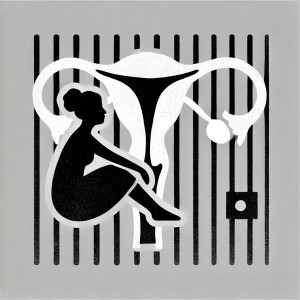Episodes

Wednesday May 14, 2025
Love in the Time of Resistance
Wednesday May 14, 2025
Wednesday May 14, 2025
How Advocates at SWOP Behind Bars Use Love Languages to Support Our People
At SWOP Behind Bars, we don't just talk about justice—we embody it. And let’s be real: in this work, survival alone isn't the goal. We're here for thriving. That means care that's intentional, compassion that's culturally competent, and connection that doesn't vanish when the paperwork's done.
Our team isn’t made up of robots or case numbers—we’re human beings who show up with heart. We laugh, we cry, we vent about bureaucracy, and we love big. One of our favorite ways to think about how we love in our work? The five love languages—but make it abolitionist.
Here’s how each love language shows up in our advocacy work, reimagined through the lens of solidarity, survival, and sex worker-centered support.

Thursday May 08, 2025
Why aren't Sex Workers used as Tools for Good?
Thursday May 08, 2025
Thursday May 08, 2025
Here’s the million-dollar question—and it says more about society’s deep-seated stigma than it ever will about the capability, wisdom, or contributions of sex workers and sex worker rights activists: Why aren’t sex workers being recognized and utilized as powerful tools in the fight for good and evil? It’s a question that should make everyone uncomfortable, because the answer isn’t rooted in a lack of experience, insight, or leadership from sex workers—it’s rooted in bias. Despite being frontline experts in resilience, harm reduction, crisis navigation, and community care, sex workers are often excluded from policy tables, media narratives, and social justice movements. And yet, no one understands the complexities of exploitation, survival, consent, and systemic violence more intimately than those who have lived it. The real issue isn’t whether sex workers are qualified to lead—it’s why society still refuses to listen.
Here’s the thing: sex workers already are tools for good. They’re just systemically denied recognition, funding, safety, and platforms. This isn’t a matter of potential—it’s a matter of deliberate exclusion. While nonprofits scramble to build “trusted messengers” and “equity frameworks,” sex workers have been quietly (and sometimes loudly) doing the work with no safety net and no applause.

Wednesday Apr 30, 2025
Reclaiming May Day: Including Sex Workers in the Labor Movement
Wednesday Apr 30, 2025
Wednesday Apr 30, 2025
On this International Workers' Day, Swap Behind Bars highlights the often-overlooked contributions of sex workers to the labor movement. While rallies and marches pay tribute to labor movements across the globe, sex workers frequently find themselves excluded from these narratives. This episode underscores the simple yet powerful message: sex work is work.
By exploring the diverse forms of labor sex workers engage in, we delve into the challenges they face, from criminalization to lack of fair working conditions. The episode also revisits the radical roots of May Day, drawing parallels between past labor struggles and the current fight for sex workers' rights.
The call to action is clear: include sex workers in labor organizing, acknowledge their contributions, and build a truly inclusive labor movement. This May Day, let's stand in solidarity with all workers, ensuring no one is left behind in the pursuit of justice.

Wednesday Apr 30, 2025
Economic Basics: Supply, Demand, Tariffs, and the Sex Trade
Wednesday Apr 30, 2025
Wednesday Apr 30, 2025
Supply and demand determine the price of goods and services. This is just a fact—and facts matter. High demand or low supply raises prices; low demand or high supply lowers them. Tariffs—taxes on imports—disrupt this balance by artificially increasing the cost of goods and services.
This basic principle of economics has been proven true since the dawn of time. Yet somehow, it remains an inconvenient truth for End Demand supporters and all their ideological reboots—the Nordic Model, Swedish Model, Equality Model, whatever they're branding it this week.
End Demand theory tries to twist a solid economic principle into a convoluted "Advanced Yoga Pretzel Pose" in order to sell the idea that criminalizing certain parts of the sex trade will magically solve human trafficking. Spoiler: It won’t.

Friday Apr 25, 2025
Mental Health and Trauma: The cycle of incarceration and untreated trauma
Friday Apr 25, 2025
Friday Apr 25, 2025
For many incarcerated women, jail or prison isn’t the beginning of a crisis—it’s the continuation of one. Behind the statistics of who ends up behind bars is a stark and painful truth: most incarcerated women have experienced serious trauma long before they ever committed a crime.

Sunday Apr 20, 2025
Sunday Apr 20, 2025
This episode delves into the harrowing experiences of Tasha, a pregnant woman incarcerated in a county jail, shedding light on the broader issue of reproductive injustice in U.S. prisons and jails. Tasha's ordeal highlights the systemic neglect and denial of reproductive rights faced by incarcerated women, often subjected to inadequate medical care and forced into shattering decisions without autonomy.We explore how incarcerated pregnant individuals are frequently shackled during labor, denied access to essential prenatal care, and separated from their newborns, compounding trauma and undermining mental health. This episode underscores the urgent need for structural reform and awareness, advocating for a healthcare system that prioritizes the dignity and autonomy of all women, regardless of their incarceration status.

Sunday Apr 20, 2025
Sunday Apr 20, 2025
This episode uncovers the harrowing realities of reproductive injustice faced by incarcerated women in the United States. Through the story of Maria, a pregnant woman who endured severe neglect and loss while behind bars, we explore how systemic failures in carceral settings deny women their reproductive rights. Despite condemnation and existing legislation, pregnant prisoners often face shackling, inadequate medical care, and forced separation from their newborns, resulting in deep trauma and unresolved grief. This narrative compels a broader discussion about public health, racial justice, and dismantling oppressive systems to ensure every woman’s right to autonomy and dignified reproductive care.

Sunday Apr 20, 2025
Sunday Apr 20, 2025
When we talk about mass incarceration in the United States, the conversation often centers around numbers—how many people are locked up, how long they’ve been there, and what it costs. But behind those numbers are real people, and among them are women whose specific health needs are often ignored, neglected, or misunderstood.
This post kicks off a six-part series examining equity in women’s health care within prisons and jails, inspired by the powerful work of researchers and advocates like Dr. Carolyn Sufrin and her co-authors. Their 2021 article, “Women’s Health Care in the Criminal Justice System,” exposes the critical gaps in how incarcerated women are treated—or not treated—when it comes to their health.




